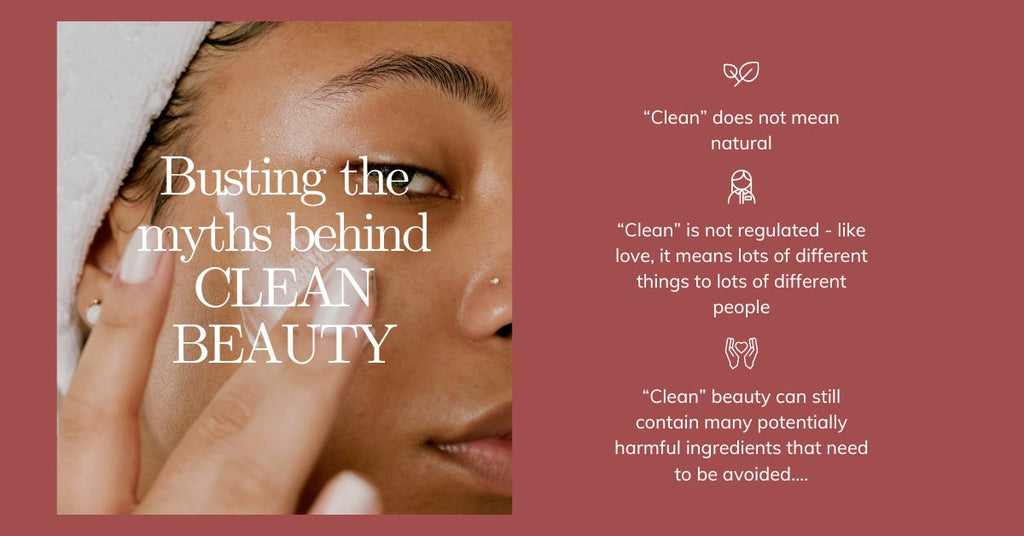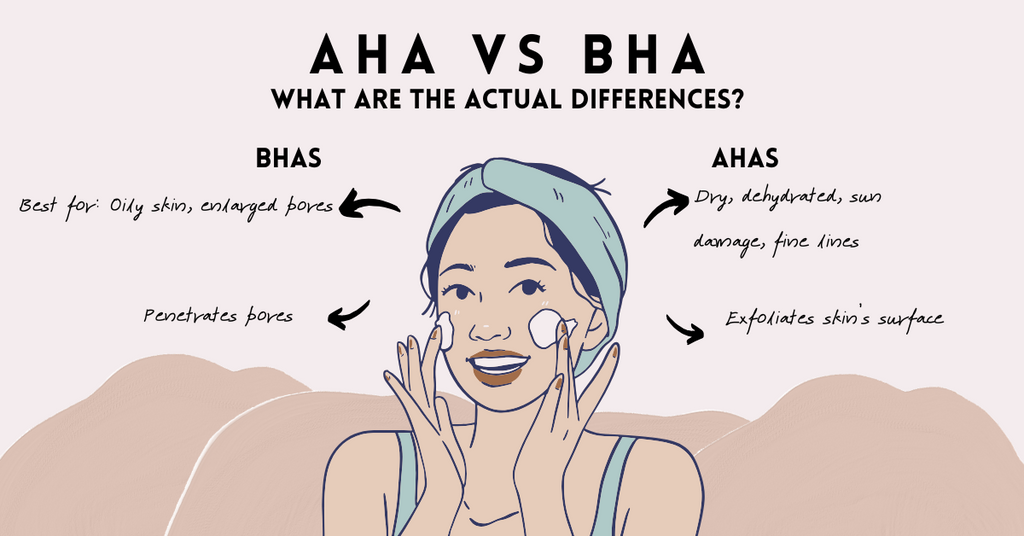
Myth #1: If it's marked as "clean", then the beauty product MUST be safe for me

I’ve always tried to eat well (sweets are definitely my kryptonite, but...), stay active (I run, do yoga etc most days), and get a reasonable amount of sleep (ok, not always a clean 7-8 hours but nobody is perfect, right?).
But skincare? Honestly, it just wasn’t on my radar—until recently, when my fertility journey made me rethink everything I put in and on my body.
I started to realize that while I was being mindful about food and exercise, I had not thought nearly enough about what was in the products I was slathering on my skin every day. It was only then that I dug deeper and discovered some of the chemicals lurking in even the most luxurious and "clean" beauty products.
Some ingredients on the "top 25 to avoid" list can still be found in beauty products labeled as "clean." Here are some examples:
- Phenoxyethanol: Used as a preservative in many "clean" products despite concerns about irritation as well as possibly neurotoxicity and reproductive toxicity (The FDA issued a warning in 2008 against using phenoxyethanol in baby care products due to possible toxic effects)
- Synthetic Fragrances: Sometimes included, clean brands may label it simply as "fragrance." and do not need to disclose the underlying ingredients as they are viewed as a "trade secret". Ingredients for synthetic ingredients have been linked to neurotoxicity, cancer concerns, endocrine disruption (affects hormone regulation potentially leading to reproductive health issues, developmental problems in children, and thyroid dysfunction), Parabenome synthetic fragrances are linked to hormone-related cancers, particularly breast cancer, due to their estrogen-mimicking effects .
- Sodium Lauryl Ether Sulfate (SLES): A milder sulfate than SLS, but still found in some "clean" products.
Ingredients like parabens and phthalates, commonly found in cosmetics, can mimic hormones or disrupt the body’s delicate balance, which felt especially relevant as I was trying to support my health and fertility.
Making the switch to plant-based skincare became more than just an aesthetic choice—it was about taking control of my health in a more holistic way. Plant-based products are free from the harsh chemicals I hadn’t realized could be working against me. Ingredients like rosehip oil and green tea extract offer hydration and anti-aging benefits without the risks tied to synthetic preservatives and fragrances.
And it wasn’t just about long-term health either—since switching to natural products, my skin feels calmer and more balanced. For someone constantly on the go, it’s been amazing to know that the skincare I’m using is working with my body, not against it. Plant-based skincare gave me the peace of mind I needed as I navigate both motherhood and my wellness journey.
If you’re like me, someone who’s been focused on healthy living but hasn’t really thought about skincare yet, I encourage you to dig a little deeper. What we put on our skin matters, and switching to plant-based alternatives can be a small yet powerful change toward supporting your overall health and wellbeing—especially when it matters most.












